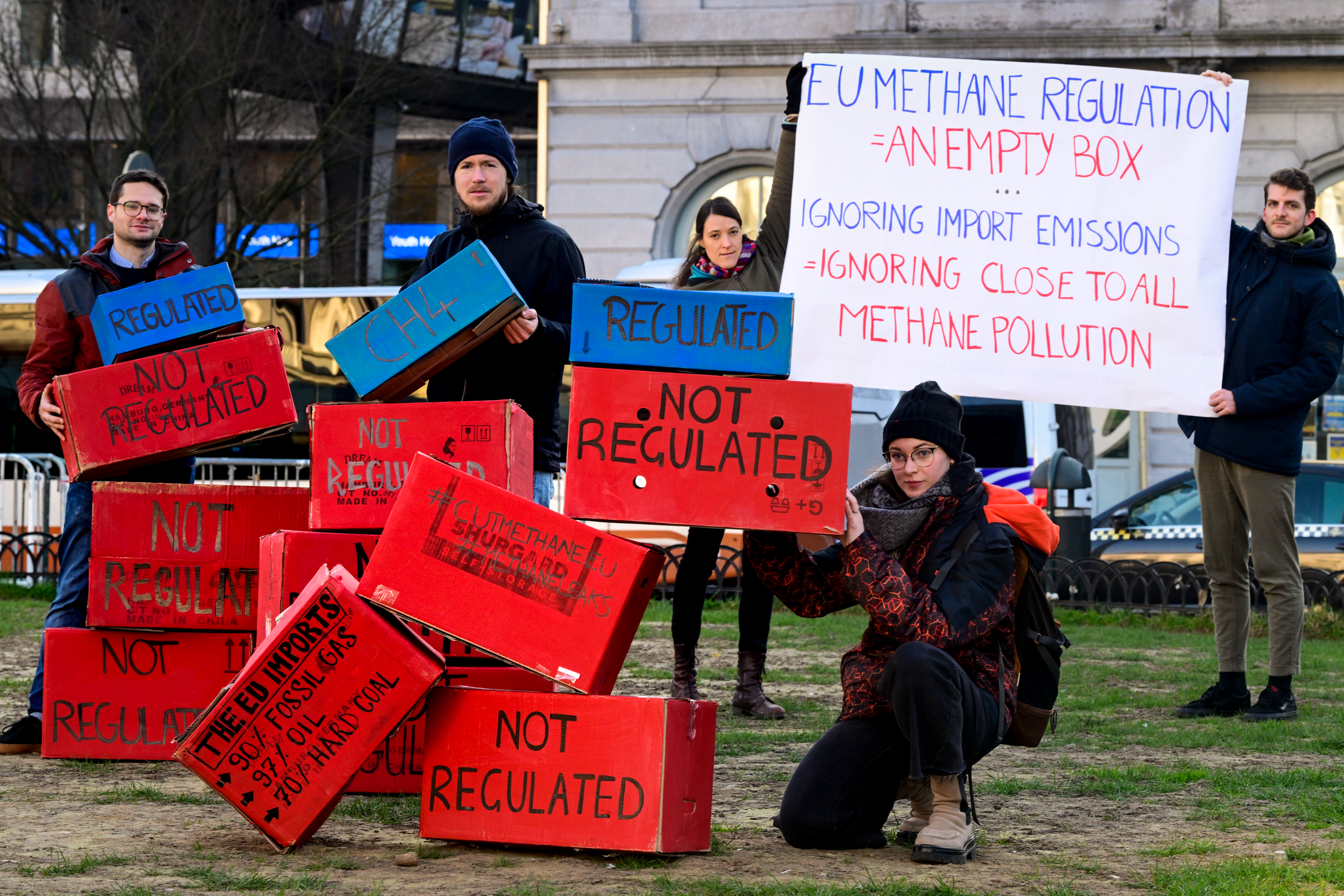Ambition Wanted – MEPs To Adopt A Bold Position On The Methane Regulation

Brussels, February 27, 2023 – The European Parliament’s Committees on Industry, Research and Energy (ITRE) and Environment, Public Health and Food Safety (ENVI) were expected to adopt on the 1st of March their position on the legislative proposal to regulate methane leaks and emissions in the energy sector. However, the work on the legislative file slowed down and the joint committee vote was postponed to a later date in March. This will be followed up by a discussion and vote in the European Parliament’s Plenary. The EU Parliament needs to act without further delay and it can’t risk starting trilogue negotiations with an unacceptably weak position, facing an even weaker Council’s position.
Methane, the main component of fossil gas, is a climate-wrecking and severely underestimated greenhouse gas with more than 80 times the warming power of carbon dioxide over a 20-year period. According to the latest International Energy Agency (IEA)’s figures, in 2022 global methane emissions from leaky fossil fuel operations were close to a record high of 135 million tonnes. To put things in context, the 2022 Nord Stream pipeline leaks in the Baltic Sea were only equivalent to no more than a couple of days of ‘regular’ methane emissions from the fossil industry. Science is clear that we can’t hope to limit global warming to 1.5°C, 2°C or any target if we don’t drastically cut methane emissions.
The first-ever EU legislative proposal on methane emissions fails to include effective measures to regulate methane emissions from fossil fuel imports. The regulation envisages only a requirement on importers and EU operators to ‘communicate’ methane emissions data.
The EU is a massive fossil fuels importer, and estimates show that carbon or methane emissions associated with imported gas consumption are three to eight times higher than methane emissions occurring within the EU. A regulation failing to include methane leaks along the whole supply chain, from extraction to distribution, means willingly ignoring a large majority of the methane emissions Europe is responsible for.
Already in December, the EU Council adopted an extremely weak position on the regulation, which basically represents a handout to the fossil fuel industry. The joint ITRE and ENVI vote in March is a chance for the MEPs to vote for the well-being of the people and a livable future. This means adopting a bold position on cutting domestic and import-related methane emissions now and working towards a fossil fuel phase-out instead of worsening Europe’s dangerous fossil fuel dependency.
The EU Methane Regulation needs strengthened domestic provisions on Monitoring, Reporting and Verification (MRV), Leak, Detection and Repair (LDAR) and Limits on Routine Venting and Flaring (LRVF) for the fossil fuel sector and those measures must be extended to energy imports. A recent legal study shows this is possible.
To move off Russian gas, Europe looks at Liquified Natural Gas (LNG) from the U.S., Qatar or Nigeria as a remedy for lack of pipeline gas. LNG shipped to Europe from the U.S. is almost entirely produced by hydraulic fracturing (fracking), a technique that releases high volumes of methane emissions into the atmosphere. The Methane Regulation must not end up being a diluted regulatory instrument, in stark contrast to the EU’s commitment to be a global leader in the fight against climate change.
Yet, even with the introduction of stringent reduction rules, methane emissions will remain a major issue. The International Energy Agency (IEA) estimates that 70% of current emissions from oil and fossil gas operations are technically feasible to prevent, but simply limiting methane emissions will not provide a definitive long-term solution. This is why any methane reduction legislation needs to be linked with a fossil fuel phase-out plan and a halt of fracked gas imports. Only an ambitious plan to cut methane emissions along with Member States, while working towards a fossil gas phase-out by 2035 is a plan that is compatible with Europe’s climate targets and with protecting a livable climate for future generations to come.
Ends
Contact:
Enrico Donda, Gas Campaigner, Food & Water Action Europe (FWAE) [email protected], +32 485 187 523


